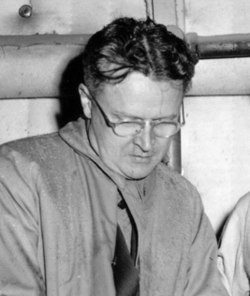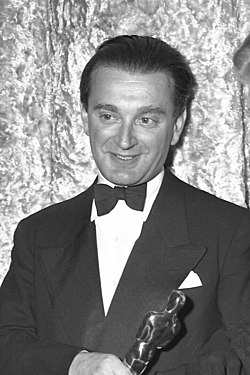Winners and nominees
Awards
Nominations announced on January 27, 1946. Winners are listed first and highlighted in boldface. [3]
Special Awards
- To Walter Wanger for his six years service as President of the Academy of Motion Picture Arts and Sciences.
- To Peggy Ann Garner, outstanding child actress of 1945.
- To The House I Live In , tolerance short subject; produced by Frank Ross and Mervyn LeRoy; directed by Mervyn LeRoy; screenplay by Albert Maltz; song "The House I Live In", music by Earl Robinson, lyrics by Lewis Allan; starring Frank Sinatra; released by RKO Radio.
- To Republic Studio, Daniel J. Bloomberg and the Republic Studio Sound Department for the building of an outstanding musical scoring auditorium which provides optimum recording conditions and combines all elements of acoustic and engineering design.









